Longtime director of one of Detroit's most visible services to the poor and hungry insists ministry has been 'a two-way street'
DETROIT — Over the years, countless people have come to the Capuchin Soup Kitchen hungry for a warm meal and a friendly smile.
Bro. Bob Malloy, OFM Cap., director of pastoral care for the soup kitchen for the past 21 years, has provided both.
From opening the kitchen to volunteers who serve meals, chatting with guests as they come in, and offering prayers and counseling to those sitting and sharing a meal, Bro. Malloy has transformed the soup kitchen into much more than a place to get a meal.
“What I like to do is directly work with the people,” Bro. Malloy told Detroit Catholic, “talking with them, getting to know them, driving them if they need a ride to the hospital or to pick up clothing — those kinds of things.”
On Sept. 16, Bro. Malloy, 78, retired from his longtime role, passing the spiritual care of the soup kitchen to Bro. Robert Wotypka, OFM Cap. Bro. Malloy will become a spiritual director at the Capuchin Retreat Center in Washington Township, a semi-retired position.
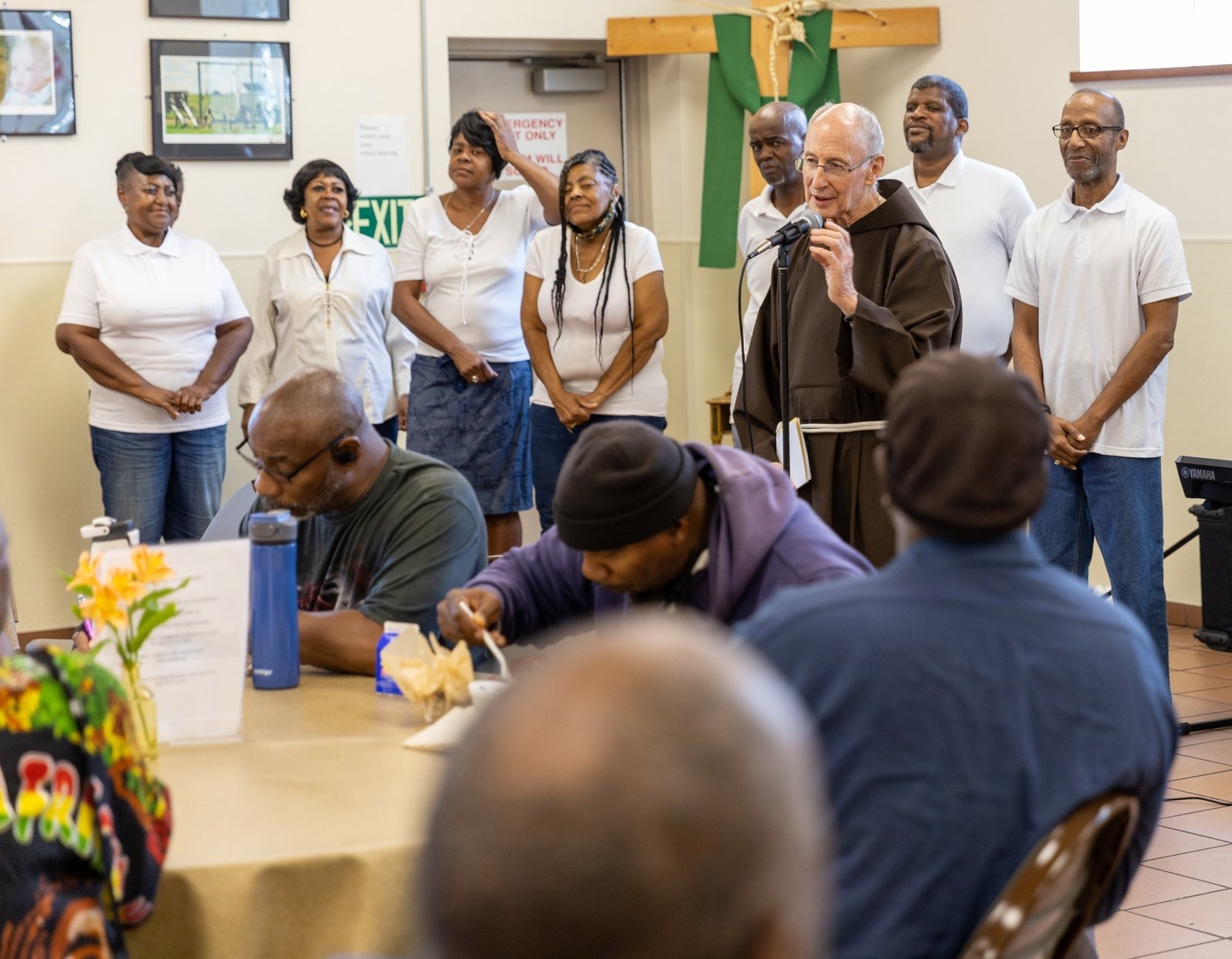
To the soup kitchen's many guests, Bro. Malloy's direct, honest, caring nature has been a pillar of stability. His background includes caring for those with mental health challenges in a psychiatric hospital, serving the underprivileged and the oft-forgotten.
“I liked to think of myself as being a brother to all the people who come in,” Bro. Malloy said. “Many people who come to this site have a mental illness or an addiction or both. As I get to know them, I gain their trust, and the relationship that forms enables me to be a pastor to them.”
Bro. Malloy is quick to point out that ministry "is a two-way street," adding the staff and volunteers are just as blessed by the opportunity to build relationships with the soup kitchen’s guests.
“To minister in a real way, it has to be a mutual kind of thing,” Bro. Malloy said. “To me, that has been a revelation. What does it mean to be a brother to all people? That means that when a man or woman says to me, ‘I love you, Brother Bob,’ I can say the same thing."
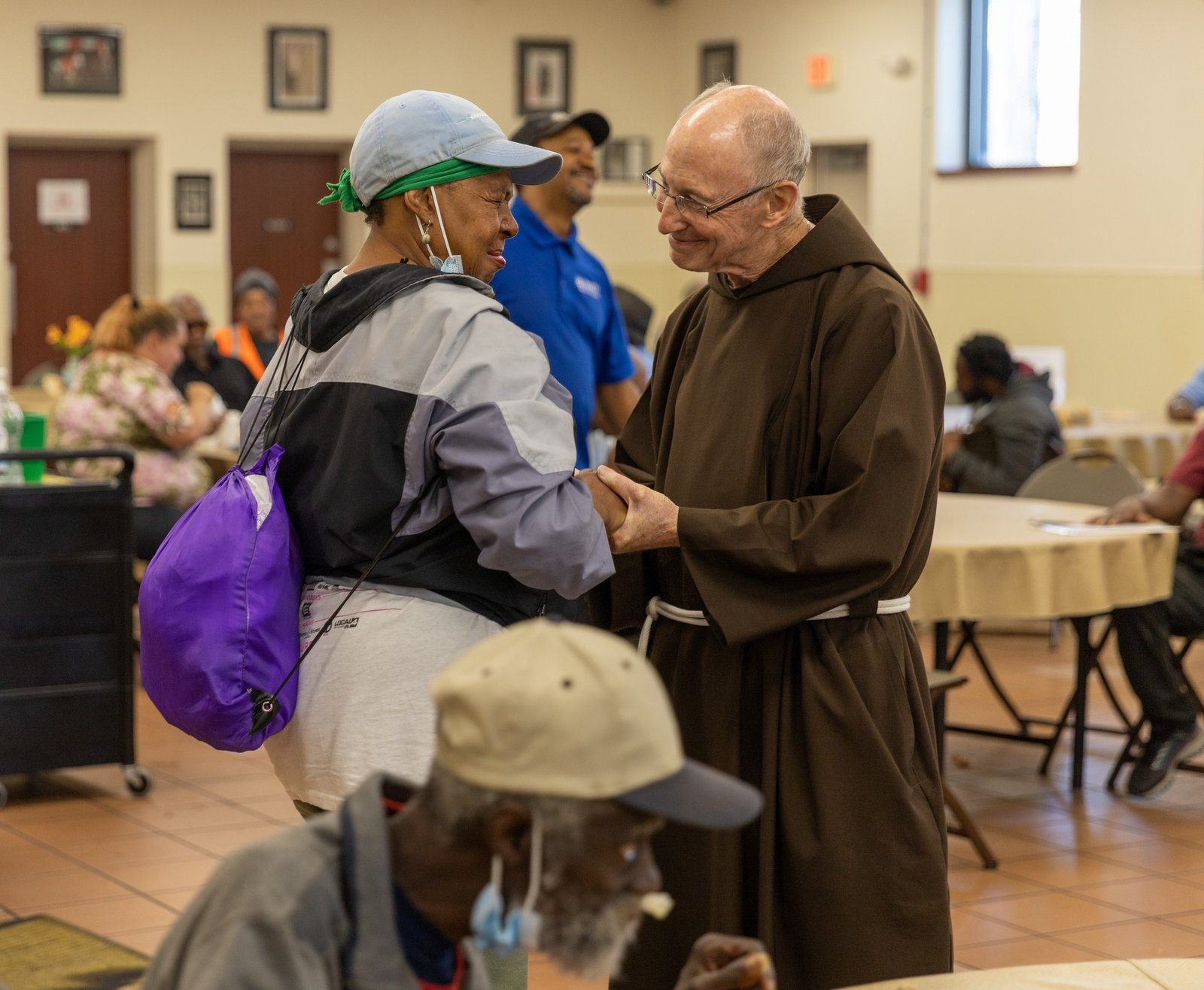
Bro. Malloy is a native Detroiter, growing up on the city’s lower east side. He joined the Capuchins in 1962, just out of high school.
In his 60 years of ministry, almost every stop has involved working with people with special needs.
His first assignment was in the Archdiocese of Detroit, working with people with intellectual disabilities and physical handicaps. He later worked at a parish in Wisconsin for seven years, followed by nine years at the Capuchin Retreat House in Saginaw, working with adults with mental illness and developing a pastoral heart for those who needed extra care, particularly after the deinstitutionalization of mental health patients after the 1960s and '70s.
During the summers, he went to Guam to develop a curriculum for confirmation classes for children with intellectual disabilities, and he also spent time in Chicago in a similar role.
Before Bro. Malloy began his 21 years at the Capuchin Soup Kitchen, he worked for two years in a psychiatric hospital in order to be better prepared for the lessons he would learn working at the soup kitchen’s Meldrum and Connor locations on Detroit’s east side.
The lack of adequate community mental health programs has led to an increase in individuals with intellectual disabilities ending up on the streets, Bro. Malloy said.
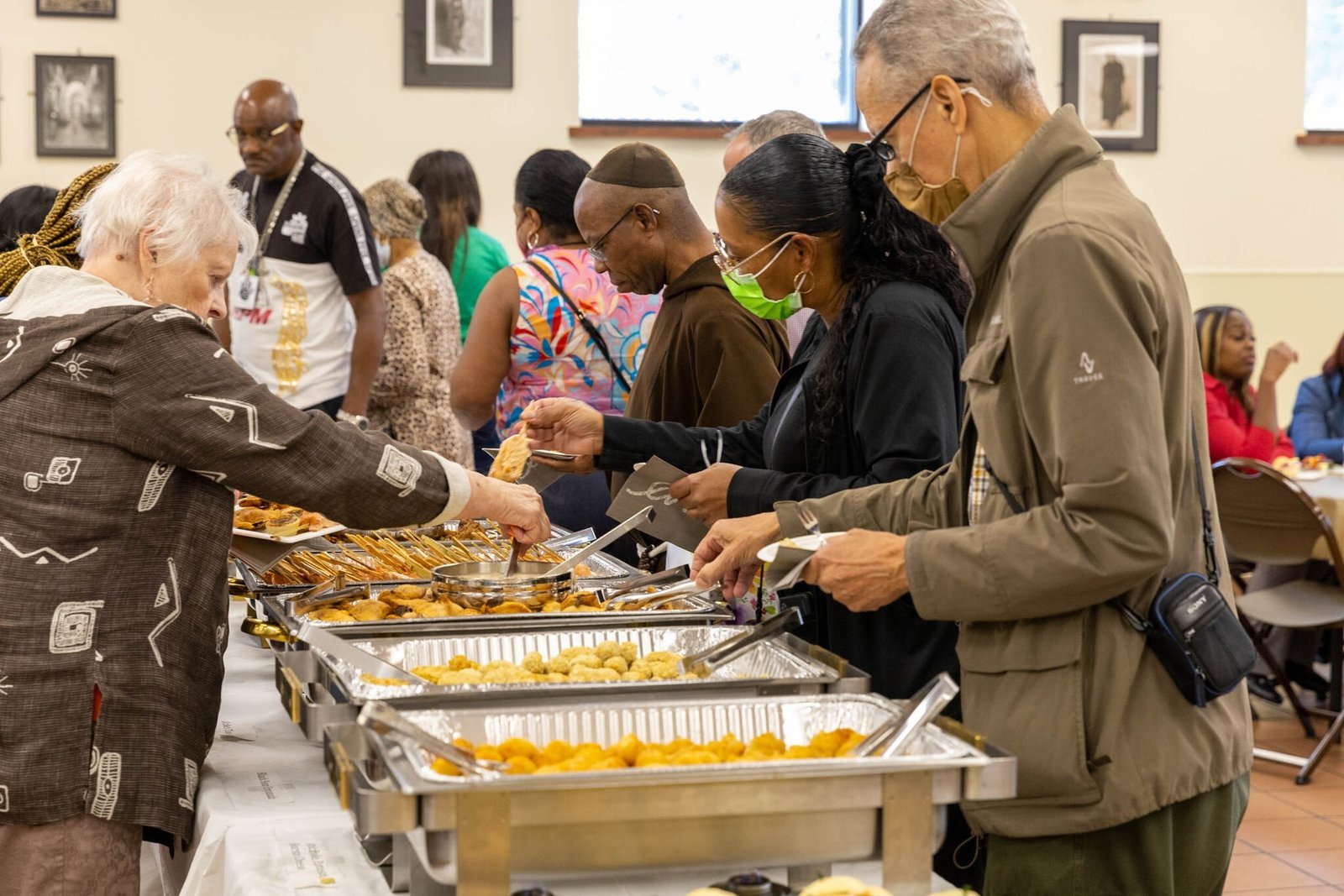
“I’ve learned what people need in terms of physical needs, but also what they need in terms of attention,” Bro. Malloy said. “A lot of people are dealing with negative behavior, so you learn how to deal with that in a gingerly way. You learn what it takes to establish trust and respect. Especially in the Black community — most of our clients are African-American — respect is a very important word, because so often they feel disrespected.”
During his time leading the soup kitchen, which was co-founded in the 1920s by Blessed Solanus Casey, Bro. Malloy said he encourages the volunteers, social workers and case managers who help clients to see the soul of the person coming in for a meal.
Once, he said, a volunteer who was handing out potatoes in the soup kitchen line recognized her blood brother, a man she hadn't seen in years, who appeared in the line.
“She dropped her ladle, ran around and hugged him. Wouldn’t it be wonderful if we saw everyone in the line in that manner, of ‘That’s my brother’?" Bro. Malloy said. "We must have concern for people, that they aren’t just a person who lives under the bridge, holding a sign and begging.”
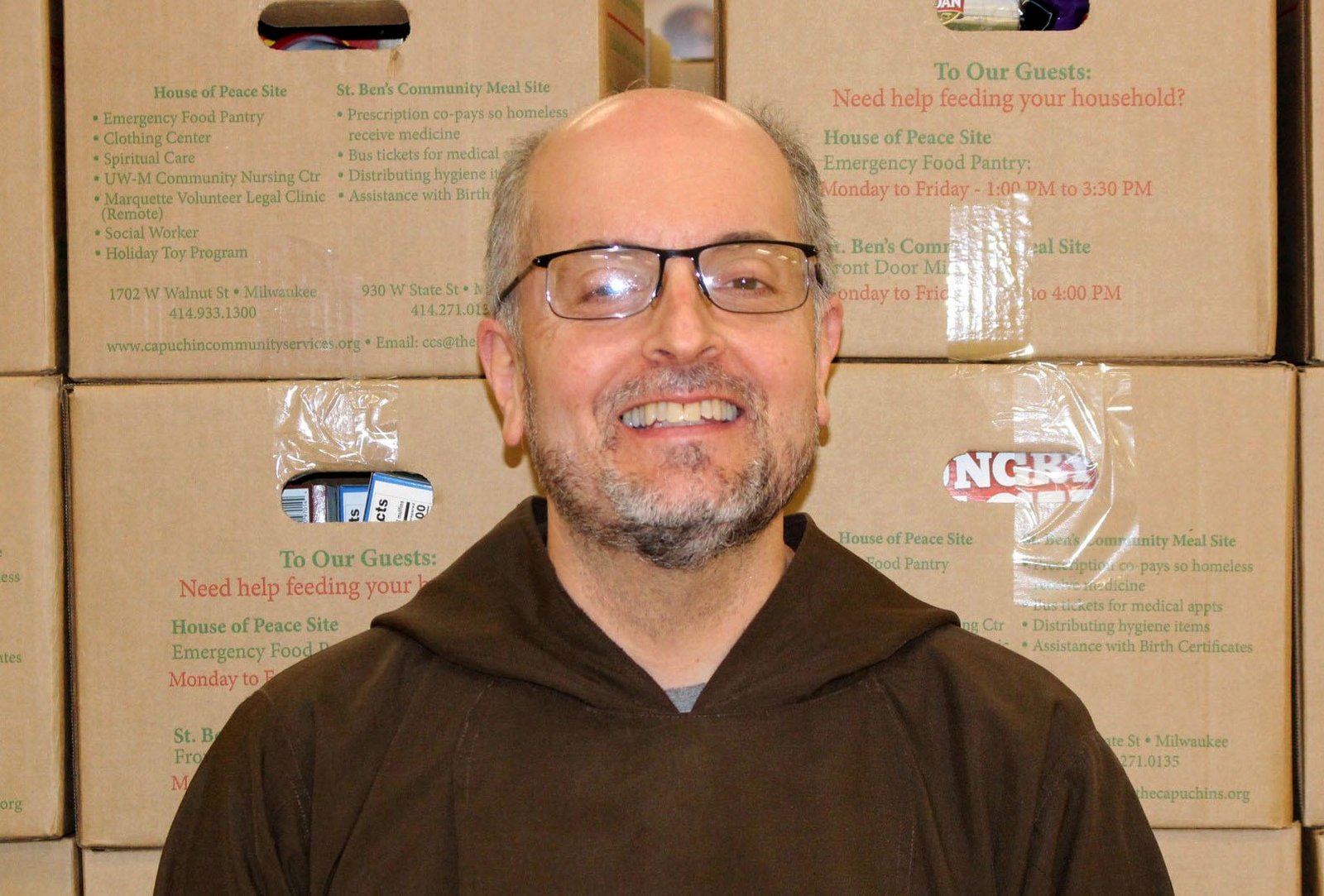
Bro. Wotypka, 59, is taking over as director of pastoral care for the soup kitchen after four years at the Capuchin Community Services in Milwaukee. His new role will involve ensuring the Connor and Meldrum locations are ready for breakfast at 8:30 a.m. and lunch at 11, leading voluntary prayer services for guests and volunteers, and guiding guests through the Scripture reflections for the day.
His goal, he says, is to ensure everyone feels comfortable and loved.
“I know folks line up before the doors open; they’re waiting outside. For people who are living unsheltered, finding a place to sit and relax is an immense comfort," Bro. Wotypka said. "I look forward to participating in those aspects of this ministry.”
Not every situation is easy. But in every situation, God provides a chance to offer His grace to a brother or sister in need, Bro. Malloy says.
Once, Bro. Malloy recalled, a man who frequented the soup kitchen was found deceased in a car at a nearby gas station. Upon learning the sad news, Bro. Malloy reached out to the man's family.
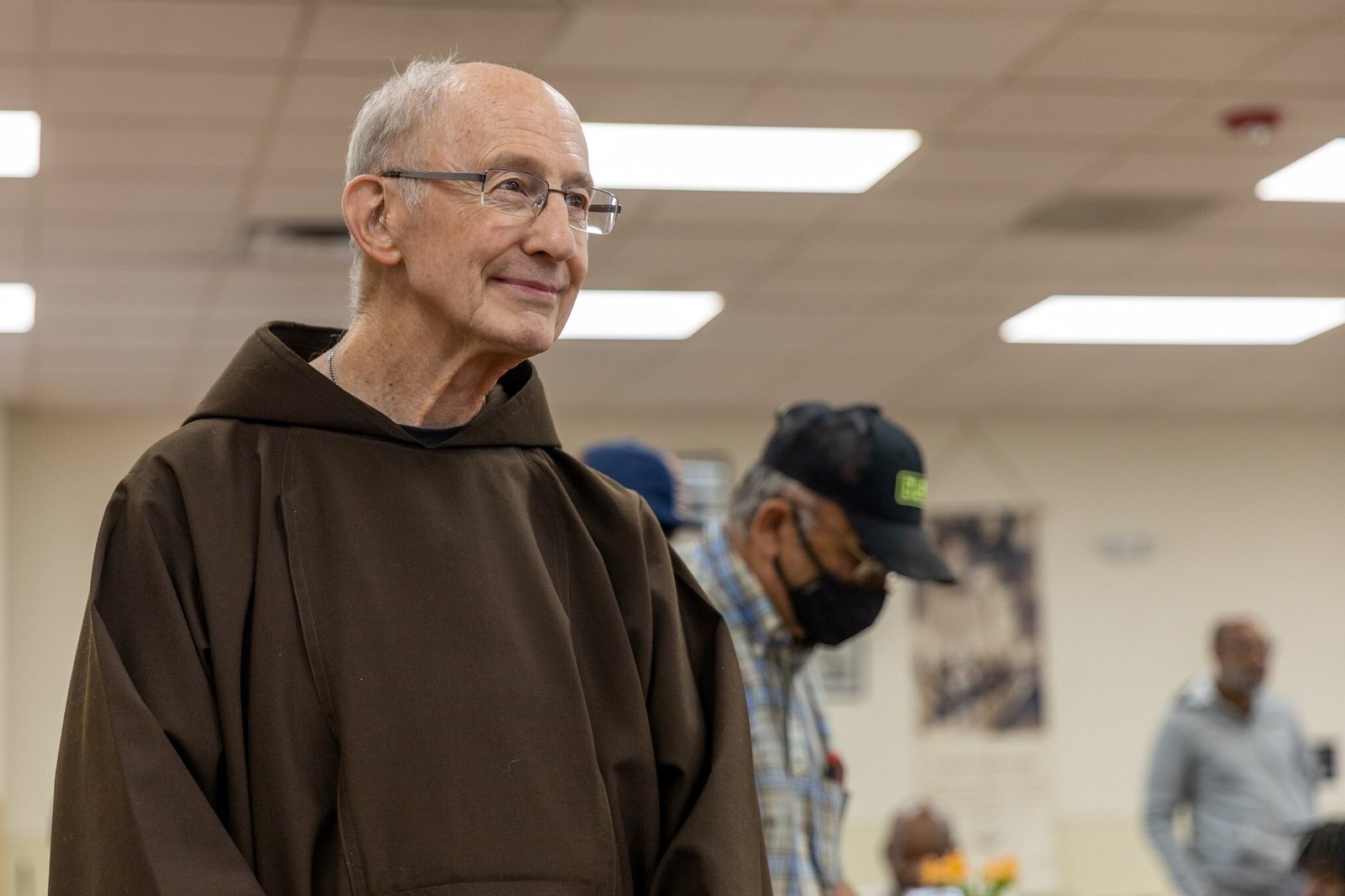
“You find out so much more about a person after they die,” Bro. Malloy said. “I had a long conversation with his mother, whom I never met, but was living in South Carolina. I learned so much more about this man, how his sister was a pharmacist, he had three adult children and one was in a football hall of fame; they were all successful. I learned so much more about my brother at that point. So often, you’ve done what you can, but you can only do so much. But being there for his mother at that difficult time, that was worth it.”
It's that human connection that's the measure of success for Bro. Malloy — creating a unique relationship with one of God's children — no matter who walks through the doors of the Capuchin Soup Kitchen.
“For me, the success stories aren’t whether or not people pull through or improve their situation," Bro. Malloy said. "It’s great when that happens, but the question is, did we make a connection with them? Do they know they are loved by God? If that’s the case, then we did our job, and we did what we’re called to do.”
Copy Permalink
Capuchins Christian service












